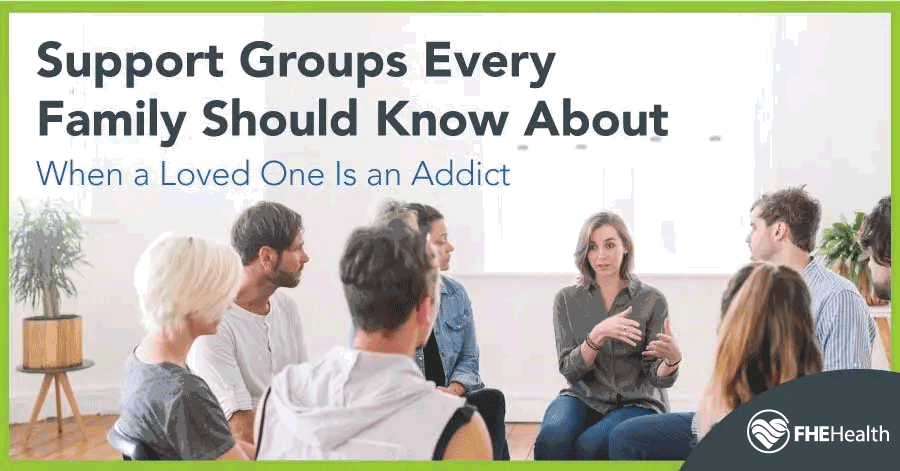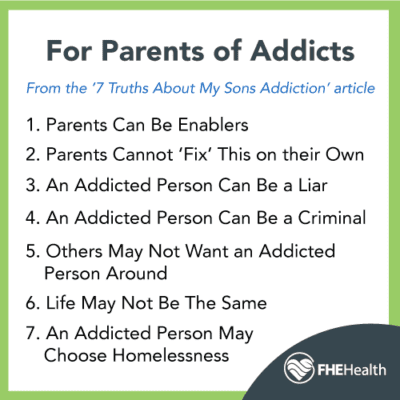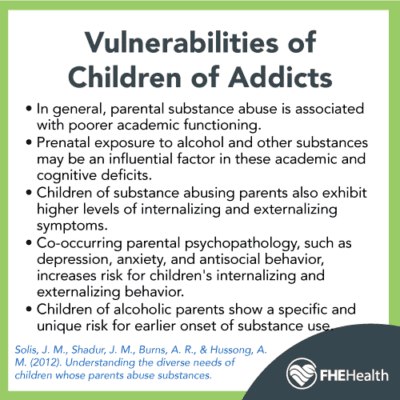
Having a loved one in treatment or recovery for addiction is one of the hardest situations a family can find itself in. On the one hand, your family member is getting help or is trying to stay clean. On the other, you can feel helpless, especially if you don’t have much experience dealing with addiction.
If you know where to look, however, there are ample opportunities to participate in your loved one’s recovery, in whatever ways they’re comfortable with.
Here’s a breakdown of some of the unique hardships faced by family members of addicts and the support groups that family members of an addict can seek out:
Parents of an Addicted Child
 When parents have a teen or adult child with a substance use disorder, it can be a very unfamiliar situation. These people are used to being able to exert some level of control over their children, but addiction can change everything. No matter how balanced a relationship is before addiction comes into play, the addition of drugs or alcohol can turn it on its head.
When parents have a teen or adult child with a substance use disorder, it can be a very unfamiliar situation. These people are used to being able to exert some level of control over their children, but addiction can change everything. No matter how balanced a relationship is before addiction comes into play, the addition of drugs or alcohol can turn it on its head.
This is the reality of having a child who is an addict, and many parents feel helpless. An article published by the Partnership for Drug-Free Kids outlines the harsh realities faced when one’s adult child is an addict.
The author talks about the initial shock of learning that his child was an addict and a tumultuous first few years that involved a constant feeling of worry and fear for what the future holds. The article’s titular “7 Truths” encompasses the acceptance that parents have to develop that they cannot fight addiction without help — that their son, the addict, will not be recognizable as long as he continues to abuse drugs and alcohol.
The fact is, parents aren’t able to force their addicted children to get help, but they can reach out for support. Here are a few different options for support groups that they can attend with or without their addicted child to learn strategies to help them in their battle with addiction:
Parents of Addicted Loved Ones (PAL)
PAL is a group specifically based around providing support to parents of people addicted to drugs or alcohol. While addicts are welcome to attend support group sessions, PAL is more targeted toward helping parents build better habits to cope with their child’s disease.
Programs used by PAL include those aimed at helping parents come to terms with the fact that some aspects are out of their control and that sometimes it’s more important to focus on their own health than to become codependent on an addict.
Children of Addicted Parents
 Often, children who grow up in homes where addiction affects one or both parents have complicated lives. Even when a child of addiction is old enough and mature enough to understand their parent’s struggle, addressing it can be an extremely complicated part of the process.
Often, children who grow up in homes where addiction affects one or both parents have complicated lives. Even when a child of addiction is old enough and mature enough to understand their parent’s struggle, addressing it can be an extremely complicated part of the process.
One study highlights the sheer number of problems that can arise when a child grows up in a home with one or both parents dealing with drug addiction. In cases where a child had to grow up in a home touched by addiction, they were more likely to experience neglect, slower development, a high risk of interaction with child welfare and foster systems on a temporary or permanent basis, and homelessness. Children of addicts are also more likely to become addicts themselves.
One reason why the impact is so grave when a child grows up in a home broken by addiction is that children need their parents to develop socially, academically, and personally. Parents (or responsible adults) are an essential part of development for children, and when addiction enters the equation, it rewires the brain in ways that cause addicts to put drugs or alcohol first, prioritizing their abuse over family responsibilities. This leaves family members stunted, at least in terms of growth with the input of those around them.
Unfortunately, minor children of addicts don’t have a wealth of resources available to them, primarily because they are still minors. They can’t make independent decisions without parental consent in some areas, and most of these children aren’t even given access to opportunities necessary for recovery. This means that young children are generally only included in the process of recovery when one or both parents are participatory. Here are some examples of support groups geared toward providing help for the families of drug addicts:
Al-Anon/Alateen Family Groups
Al-Anon is a nationwide network of support groups that help family members get help with a loved one’s addiction. Alateen is part of the same system but is geared towards younger family members and friends. Both groups have an understanding of the issues faced by children from homes impacted by addiction and make it a point to provide support and guidance to these individuals. Al-Anon and Alateen are both primarily geared toward families touched by alcoholism.
Nar-Anon Family Groups
Nar-Anon, on the other hand, addresses the families of those addicted to a wide variety of narcotic drugs, including opiates like heroin and prescription pain medications, along with an array of other addictive substances. This group is similar to Al-Anon but views the process of recovery and support through the lens of a different type of addiction.
Adult Children of Alcoholics
Not all the damage is limited to families in which addiction is currently an issue, however, and that’s why Adult Children of Alcoholics was formed. The impact of addiction within a family, even after a loved one has gone through recovery, can lead to lasting damage. During early development, children are emotionally fragile, and living with an addicted parent may lead them to develop certain mental and emotional disorders. This group is designed to help adults with this background build a supportive community and get the help they need for themselves, out of the context of their loved ones.
Other Close Relationships
While there are other complicated family relationships that may be damaged by addiction (spouses, for example, or siblings), family groups don’t always need to be attended by people directly related. Many of the groups mentioned above are also open to family and friends and include issues that uniquely affect them when addressing their needs in the context of providing support.
For spouses whose relationships are threatened by addiction, or families who have a sibling, cousin, or other relative harming relationships with their behavior while under the influence, 12-step groups are another option. Programs like Alcoholics Anonymous and Narcotics Anonymous often welcome loved ones of group members into meetings to see how to help their friend or relative view how the program works and how to give them the support they need outside of a group.
Family Counseling During Addiction Treatment
Most inpatient and outpatient addiction treatment programs make a point to include family members, friends, and other loved ones in a variety of options for support, whether this means counseling and therapy sessions where family members are present or larger group family counseling sessions within a group.
At FHE we present several options for family and friends to get involved with their loved one’s recovery, both for their own emotional process and to provide the necessary support to their loved one through an arduous process of healing.
Addiction affects the entire family unit. There is no shame in seeking a support group because of its impact. Often the best thing you can do to support your family member is to take care of yourself and be available when they reach out for help.






